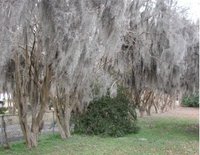Crape-myrtle
|
|
| Crape-myrtle | ||||||||||||
|---|---|---|---|---|---|---|---|---|---|---|---|---|
 Crape-myrtle flowerhead | ||||||||||||
| Scientific classification | ||||||||||||
| ||||||||||||
| Species | ||||||||||||
|
About 50, including: |
The Crape-myrtles Lagerstroemia are a genus of about 50 species of deciduous and evergreen trees or large shrubs native to east Asia and Australia. They have sinewy-looking fluted stems whose bark peels off; each year the parts peel off between those that peeled off last year, or where squirrels scratch it, giving a patchy appearance. The leaves are opposite, simple, with entire margins, and vary from 5-20 cm long. The flowers have six or seven crinkly-edged petals on stalks, sticking out between the sepals, which are simple triangular points. The flowers occur in long (20-40 cm) spike-like clusters, and can be white, pink red, purple or lavender; flowering is from mid to late summer. The fruit is a capsule, green at first, then ripening to black, which opens along six or seven lines, producing teeth much like those of the calyx, and releasing numerous small winged seeds.
The Common Crape-myrtle L. indica, from China and Korea, was introduced by French botanist Andre Michaux ca. 1790 in Charleston, South Carolina, where it is today a very common ornamental shrub raised and cultivated in South Central United States and is growing in popularity.
The Giant Crape-myrtle L. speciosa, from tropical India, is a tree which is established only in the warmest parts of the US, such as Texas, Louisiana, Oklahoma, New Mexico, Arizona, California, Georgia, and surrounding states.
Both species are becoming more and more prevalent in the home owners landscape designs as well as commercial industries for businesses and municipalities along roadways, highways and byways. They both have become so common it is sometimes almost impossible to tell them apart without laboratory testing.
The genus is named after the Swedish merchant Magnus von Lagerström, who supplied Carolus Linnaeus with plants he collected.

